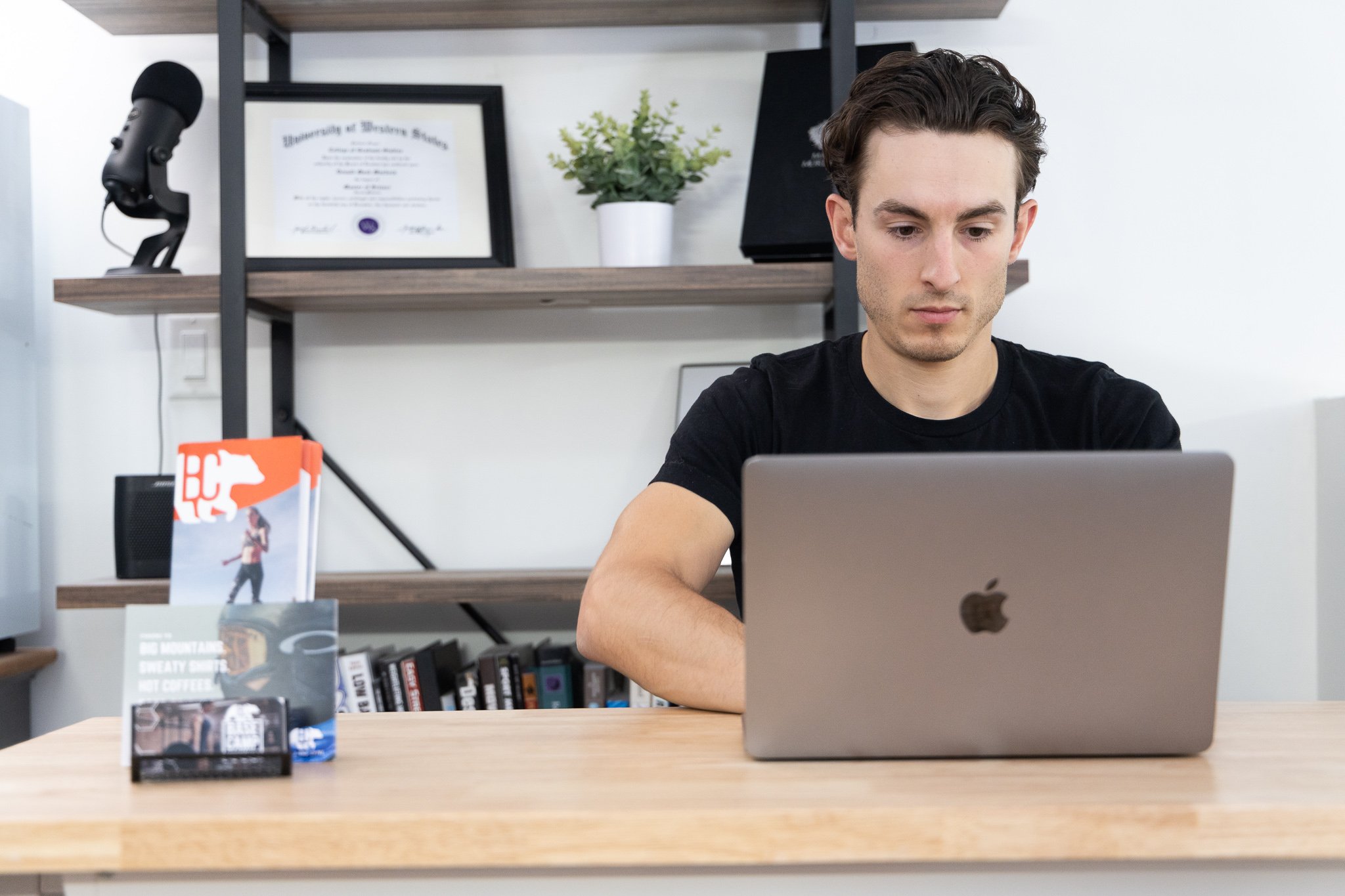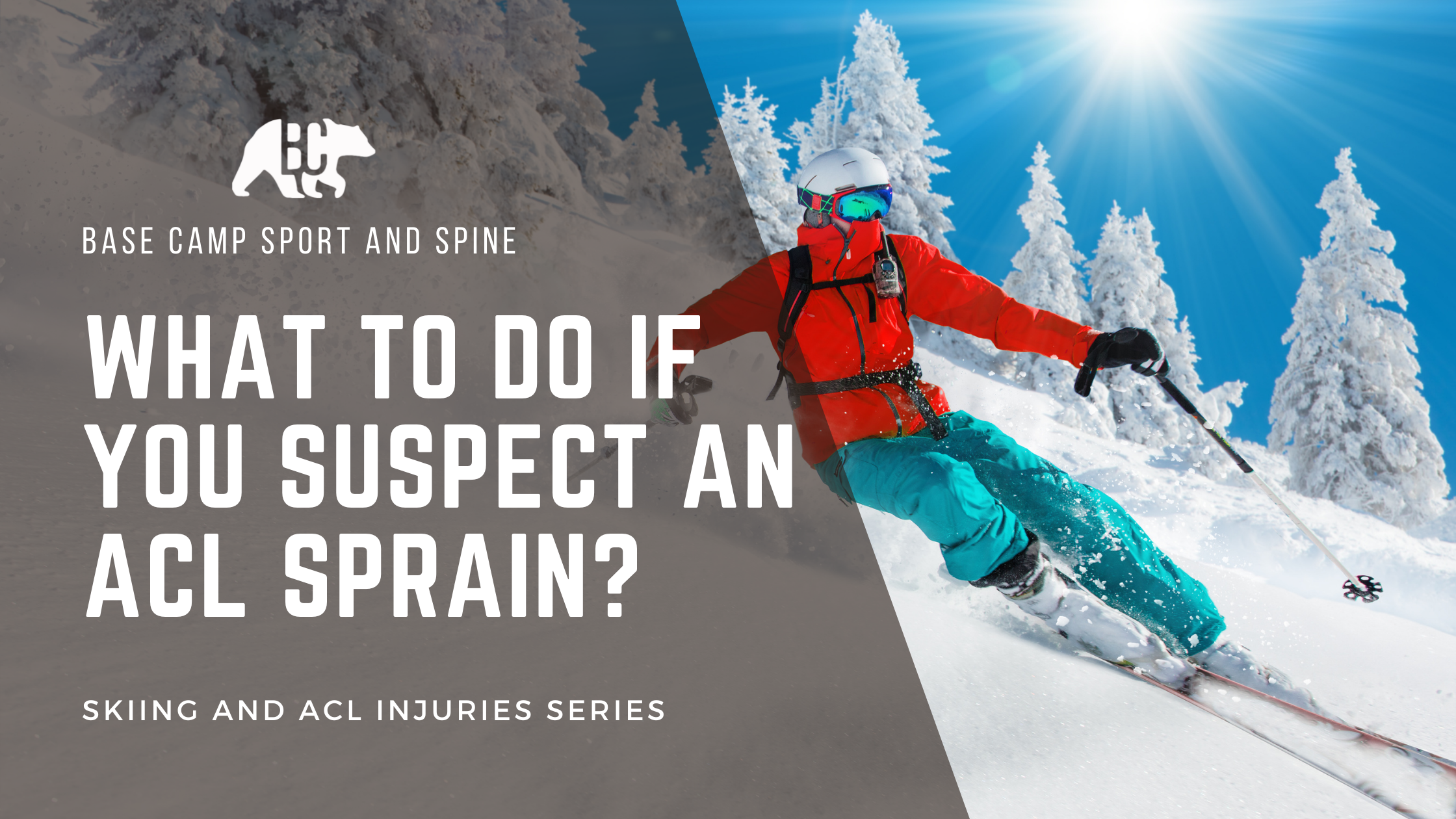
Blog
want to take a crack at your injuries from home?
Check out our blog posts and find the topics specific to you
Topics:
Skiing and ACL Injuries - Part 2
What to do if you suspect you have injured your ACL
This is PART 2 of a three part series about skiing and your ACL
In this article, we are going to cover:
What to do if you think you have an ACL injury
How do I know I have an ACL injury?
Do I need surgery to fix my ACL?
Will I have knee pain forever after hurting my ACL?
Can I still ski after I tear my ACL?
You missed Part 1? Learn about the fundamentals of ACL injuries here
In part 3, we will cover training and injury prevention.
How do I know if I have an ACL injury?
If you suspect you might have an ACL injury, I highly recommend getting assessed. Proper assessment and rehab is essential for preserving your ability to use your knee long term.
In the case of ski-related ACL injuries though, most skiers know when they had a major ACL injury. This is usually because they couldn’t make it off the mountain on their own and had to be towed out on a stretched or sat on the back of a sled.
If you are NOT sure though, here are a couple of things that I look for as a Chiropractor in Vernon, BC when I get a skier with knee pain who I suspect might have an ACL surgery:
First, I ask a series of questions looking for some common signs and symptoms of ACL sprains:
Knee pain following trauma
“Pop’ or ‘snap’ sensation at the time of the injury
Pain and/or rapid swelling in the knee at the time of the injury and ever since the injury
Catching or locking while walking
A subjective feeling of instability or ‘giving way’ when weight bearing
Then I look and test for:
Swelling or bruising around the knee joint
Structural integrity of the ligaments in the knee (checking for instability)
Ability to weight-bear and/or walk
Ultimately, if you suspect you have an ACL injury from skiing, I highly recommend you get an assessment. The clock may be ticking on your rehab protocol. Whether that is from us at Base Camp Sport and Spine, another chiropractor in Vernon, a physiotherapist in Vernon, a physiatrist or someone else doesn’t matter (but I do recommend a clinician with experience working with skiers or sports injuries).
PRO TIP: if you can’t find someone in your area that often works with skiers, working with someone experienced with soccer players is also a great option because of the prevalence of soccer-related ACL injuries.
What should I do if I injure my ACL?
The first thing I recommend doing if you think you have injured your ACL is getting an assessment by someone who knows what they are doing. A good physiotherapist, sports medicine provider, or sports chiropractor will be able to help start you on the right path.
One of the first things we need to decide after you get assessed following an injury is whether or not you are interested in surgery.
Do I need surgery to fix my ACL?
Let me be clear: even a FULL ACL rupture does not automatically mean you need to have surgery. ACLs can heal, but they heal slowly and only heal in a small percentage of people. Conservative care (i.e. a proper rehabilitation program) can get a lot of people back to their activity WITHOUT surgery (even if their ACL doesn’t fully heal). The caveat is that sports that require high amounts of cutting and twisting (like soccer, tennis, skiing, etc) put you at higher risk for meniscus injury later on if you do not have an ACL.
Whether or not you decide to have surgery is a personal decision that you need to make in conjunction with your provider and your surgeon. There are costs and benefits to either decision, so you need to understand them before jumping into one decision or another.
If you decide that you want to go down the surgical route, one of the first steps is getting a consult with a good orthopaedic surgeon and getting an MRI (the best way to see the ACL). Hot Tip: if your doc tells you your ACL is ruptured because they saw it on an X-ray, get a new doctor. X-rays only show us the hard stuff (bones) and will not show your ligaments or tendons).
Will I have knee pain forever after tearing my ACL?
Not necessarily. With a proper progressive rehab plan and a focus on your overall health, you can be pain-free even after a full ACL tear.
Something to keep in mind is that following an ACL tear and ACL surgery, there IS a higher incidence of osteoarthritis (OA), but thankfully OA does not automatically mean you will have pain. It does mean that staying on top of your nutrition, sleep, and stress management are important to better manage your inflammation.
Can I ski after injuring my ACL?
Yup!
Not immediately, but most skiers who injure their ACL can get back to skiing after an ACL injury. Depending on the severity of the injury though, an ACL injury often means that you are out for the season.
Whether you decided to have surgery or not, the ACL rehab process is lengthy in order to avoid reinjury. Most of my patients who are rehabbing an ACL injury can expect at least 9 months before returning to full activity, and many as long as a full year.
Author: Dr Mark Murdoch, Chiropractor and Co-Founder at Base Camp Sport and Spine in Vernon, BC.
Mark Murdoch is a Doctor of Chiropractic with a Master’s Degree in Sports Medicine.
Contact: drmurdoch@basecampclinic.com
Instagram: Base.Camp.Doc
Disclaimer: This blog is intended for general informational purposes only and is not intended for the delivery of medical advice. No doctor/patient relationship is formed. The use of information on this blog or materials linked from this blog is at the user's own risk. The content of this blog and website is not intended to be a substitute for medical advice.















How running injuries happen